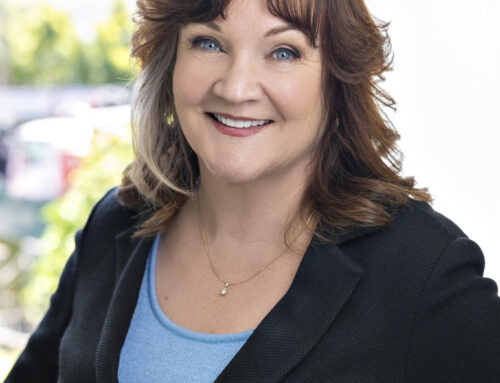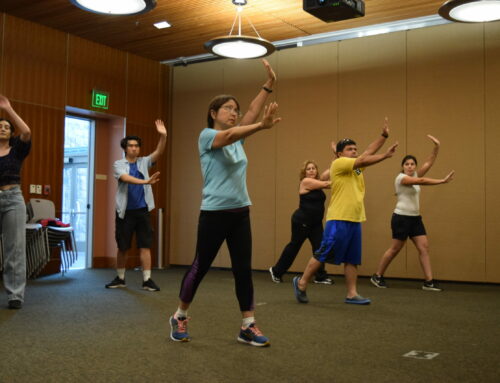South Valley nonprofits distribute food locally to help alleviate daily struggle
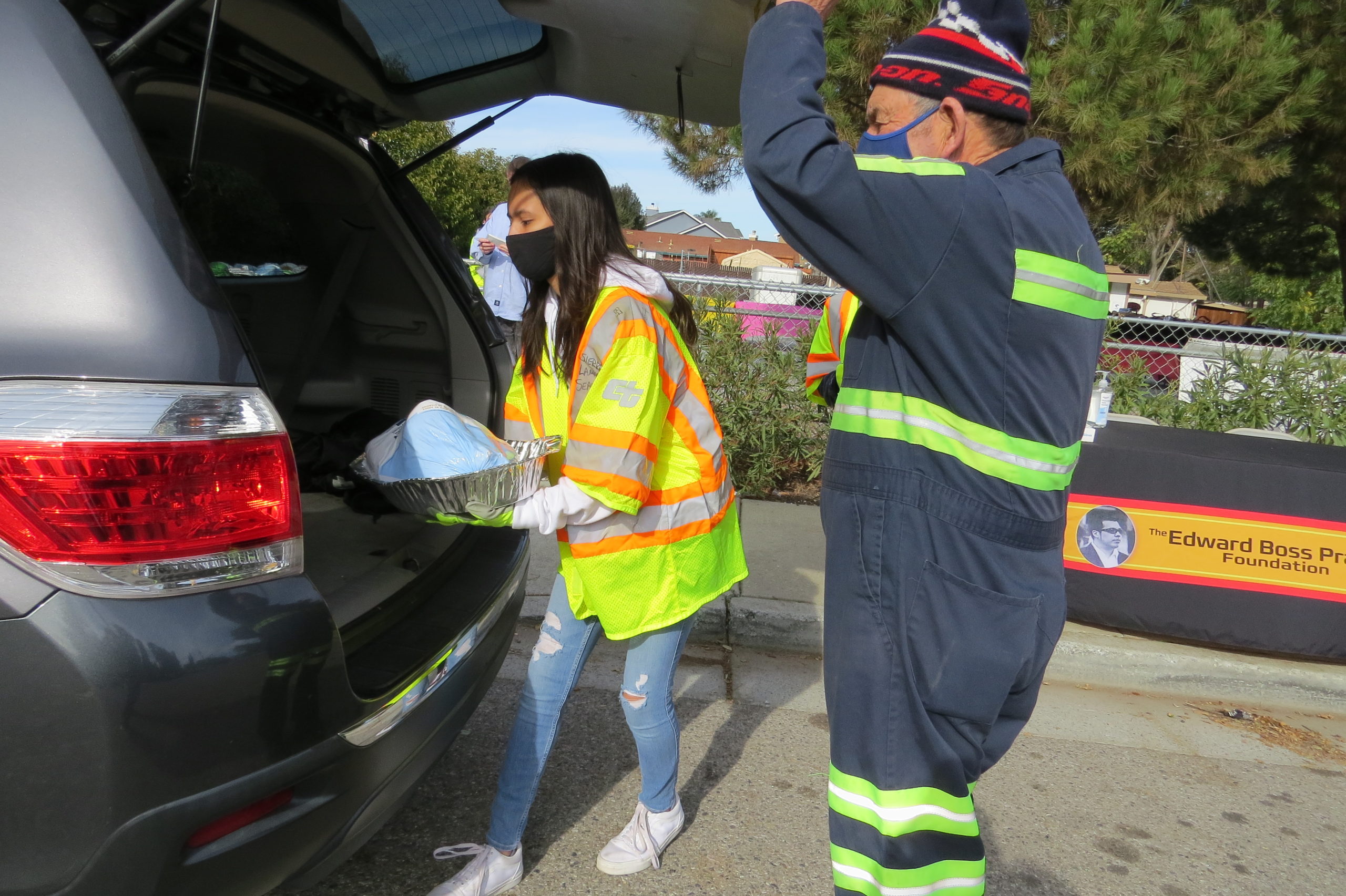
Photos by Marty Cheek
Above: Live Oak High School Interact club member Monica Iboa loads a frozen turkey into a car with assistance from Cecelia’s Closet’s Gary Ponzini. Right: Interact member Saige Hubbard prepares a turkey.
By Marty Cheek
Ten months into the global pandemic, hunger is more pervasive than ever across America. For nearly one in every six individuals in the United States, getting enough nutritious food can be a daily struggle because of the virus-induced economic downturn.
In the midst of the COVID-19 crisis, thousands of people in the South Valley face challenges when it comes to getting adequate nutrition for a healthy diet. To help those in need here, several nonprofit organizations distribute food and other necessities throughout the year. Among them is the Edward Boss Prado Foundation, which has several programs that administers to local people who require assistance.
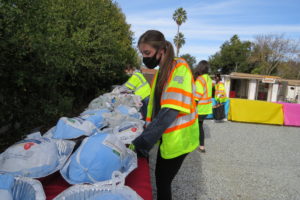 The foundation’s Cecelia’s Closet program is a distribution site located in the Madrone district north of downtown Morgan Hill. On Saturday Nov. 21, a steady stream of vehicles stopped by a curbside pop-up tent to pick up Thanksgiving turkey dinners at the location. Between 15 and 20 pounds, the frozen birds provide enough leftover meat for sandwiches and other meals for several days. The turkeys came with the traditional trimmings: mashed potatoes, gravy, stuffing, yams, cranberry sauce, cans of corn and cans of green beans.
The foundation’s Cecelia’s Closet program is a distribution site located in the Madrone district north of downtown Morgan Hill. On Saturday Nov. 21, a steady stream of vehicles stopped by a curbside pop-up tent to pick up Thanksgiving turkey dinners at the location. Between 15 and 20 pounds, the frozen birds provide enough leftover meat for sandwiches and other meals for several days. The turkeys came with the traditional trimmings: mashed potatoes, gravy, stuffing, yams, cranberry sauce, cans of corn and cans of green beans.
Five volunteers from the Live Oak High School Rotary Interact service club carried the items to the vehicles and placed them in the trunk or back seat. The volunteers were junior Monica Iboa, and seniors Shasta Hubbard, Saige Hubbard, and Katelin Pfeil. Interact member Faris Zulhazmi, a senior, patrolled the street with a red flag to guide the arriving vehicles.
 Saige Hubbard said she joined the club to do community service. Seeing the people in need come to pick up their Thanksgiving meals helps her appreciate the blessings of her own life more.
Saige Hubbard said she joined the club to do community service. Seeing the people in need come to pick up their Thanksgiving meals helps her appreciate the blessings of her own life more.
“I really like volunteering, but I’m really sad that COVID is happening because we don’t get to do volunteering very much,” she said. “This is my first time volunteering this year. I think a lot of young people should volunteer more and it should be seen as a normal thing.”
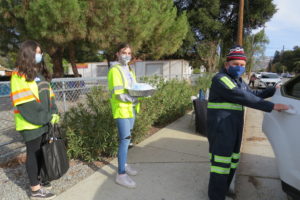
Rotary Interact service club member Saige Hubbard carries a turkey to a car as Gary Ponzini with Cecelia’s Close opens the back door.
Photo by Marty Cheek
Cecelia Ponzini, the founder of the Edward Boss Prado Foundation, expected about 500 local families would enjoy a meal Thanksgiving Day through her group’s food distribution activities. The nonprofit gave turkeys to about 160 families that come to the Cecelia Closet site. The rest of the meals were distributed through other groups including Youth Alliance, CARAS (Community Agency for Resources, Advocacy and Services), Rebekah Children’s Services, Community Solutions and the Morgan Hill Unified School District’s adult education program.
“The need is more because of COVID,” Ponzini said. “This isn’t just about the people who were already underserved. This is about people who had jobs and were doing well and are not doing well anymore and they’re worried about where their next paycheck is going to come from. This is really hard times. It’s really sad.”
Families who have never sought assistance before have been coming to pick up food from Cecelia’s Closet in recent weeks. They include people who in the past have donated financially to the foundation. One man who stopped by is employed by a prominent Silicon Valley company and was forced to work at home because of COVID.
 “We will continue to serve these families as long as I’m breathing,” Ponzini vowed. “The community has been really good. Thank you to all the donors and sponsors who gave so generously.”
“We will continue to serve these families as long as I’m breathing,” Ponzini vowed. “The community has been really good. Thank you to all the donors and sponsors who gave so generously.”
The pandemic has changed how people across the world interact, how they shop, and how they work. In some cases, those changes are relatively small such as wearing masks in public, working from home if they can, and trading in-person family gatherings for virtual game nights. But for food banks, pantries, meal programs and the people who depend on them, COVID-19 has meant a tremendous shift in not only a rising need, but how those programs such as St. Joseph’s Family Center in Gilroy and Cecelia’s Closet are operating.
The coronavirus crisis has created a “new normal” that is likely here to stay, some experts say. And the challenges it brings with food insecurity will no doubt grow more severe over time in the South Valley as well as most of the United States.
About 60 percent of Americans experiencing food insecurity said the expiration of federal assistance programs, such as enhanced unemployment benefits and stimulus payments, has made it even more difficult to get meals during the coronavirus crisis. About half of those surveyed described they are struggling to provide their families with food more now than in the first months of the pandemic.
Programs run by the U.S. government help those in need. These include the Supplemental Nutrition Assistance Program, the Special Supplemental Nutrition Program for Women, Infants and Children, and the Emergency Food Assistance Program. Food banks such as Second Harvest and pantries such as St. Joseph’s in Gilroy, Cecelia’s Closet and the Reach Out emergency food distribution run by St. Catherine Church in Morgan Hill are picking up a lot of the slack locally.
For thousands of South Valley families, struggling with hunger is only one more challenge of COVID-19 that is adding to their stress and anxiety. On top of helping their children with online learning as school sites remain closed, parents who have lost employment now must contend for the first time with the reality of empty cupboards – something most have never had to deal with before. Without a regular paycheck, or with a reduced income, many people must choose between paying for groceries or taking care of bills such as monthly rent or mortgage. The visits to local food pantries helps ease the anxiety of for these families challenged by the pandemic’s impact on their household finances.
The South Valley community has been extremely supportive in filling the food needs of local individuals and families who are struggling, said David Cox, executive director at St. Joseph’s. Several days of the week, the pantry’s staff start their days at 6:30 a.m. by driving a refrigerated truck until 2 p.m., making their rounds of pickups of food items that might otherwise be discarded from local retailers in Morgan Hill and Gilroy. These include Target, Walmart, Costco, Safeway, Trader Joe’s, Nob Hill, and Grocery Outlet. Rocca’s Market in San Martin helped ease the demand by supplying 200 Thanksgiving turkeys to St. Joseph’s.
Years ago, the food pantries reception of food from retailers was very limited because of concerns of lawsuits if perishable food was spoiled and given to the needy. But Good Samaritan laws passed by California legislators have allowed stores and other suppliers to provide a higher quality and more variety of the products they donate, Cox said.
“Most of them are fresh items and nutritious items,” he said. “So we’re seeing dairy, we’re seeing meat, we’re seeing vegetables and fruits. Luckily, we have the bandwidth to not only clean it and store it but make sure we’re keeping that cold chain in place.”
Through the funding of government grants and foundation grants as well as private support, St. Joseph’s is able to make sure there is an adequate amount of food for those in need in the South Valley. The Sobrato Family Foundation, the Silicon Valley Community Foundation and the Khan Family Foundation philanthropy groups have been generous in helping fill the need, Cox said.
“I think one of the blessings for us is the diversity of the funding. We’ve never had this tsunami year where everything goes to pot,” he said. “We’ve lost four fundraisers. Those support what I call ‘fill the cracks.’ It’s been a challenge, but somehow we’ve been able to keep things sustained, which is lovely. It’s the diversity and the organic support that really keeps us thriving.”
Paul Olvera manages the distribution of the boxes of food to the clients at the St. Joseph site. He’s worked with the nonprofit for eight and a half years and has seen the rise and fall of people in need coming for food during various phases the coronavirus crisis.
“The numbers went up at the beginning, went down a bit, and now they’re spiking right up again as we’re now in the purple (most restrictive) tier,” he said.
He understands that people felt they were confined at home and constricted in their activities during the shelter-in-place orders. After several months of the restrictions, coronavirus fatigue led to complacency among many residents. But the restrictions are necessary to stop the spreading of the disease, he said.
“I’m OK with the shut down because I believe in safety first,” he said. “I know that the shut-down is going to cause our numbers (of people in need) to spike right up, but I’m for it so long as the cases go down. I don’t mind serving a thousand people in a day so long as keep the cases down.”
Olvera has seen people who own businesses in Gilroy come to get food at St. Joseph’s because they are financially struggling during the pandemic. It’s a warning sign of how the economic impact of coronavirus restrictions is hurting the community.
“They show up with tears, because they feel ashamed and embarrassed,” he said. “But I tell them, ‘Don’t be ashamed or embarrassed because it’s that shame and embarrassment that will keep you down.’ That’s what we’re here for. We’re a family resource center to fill that need.”





